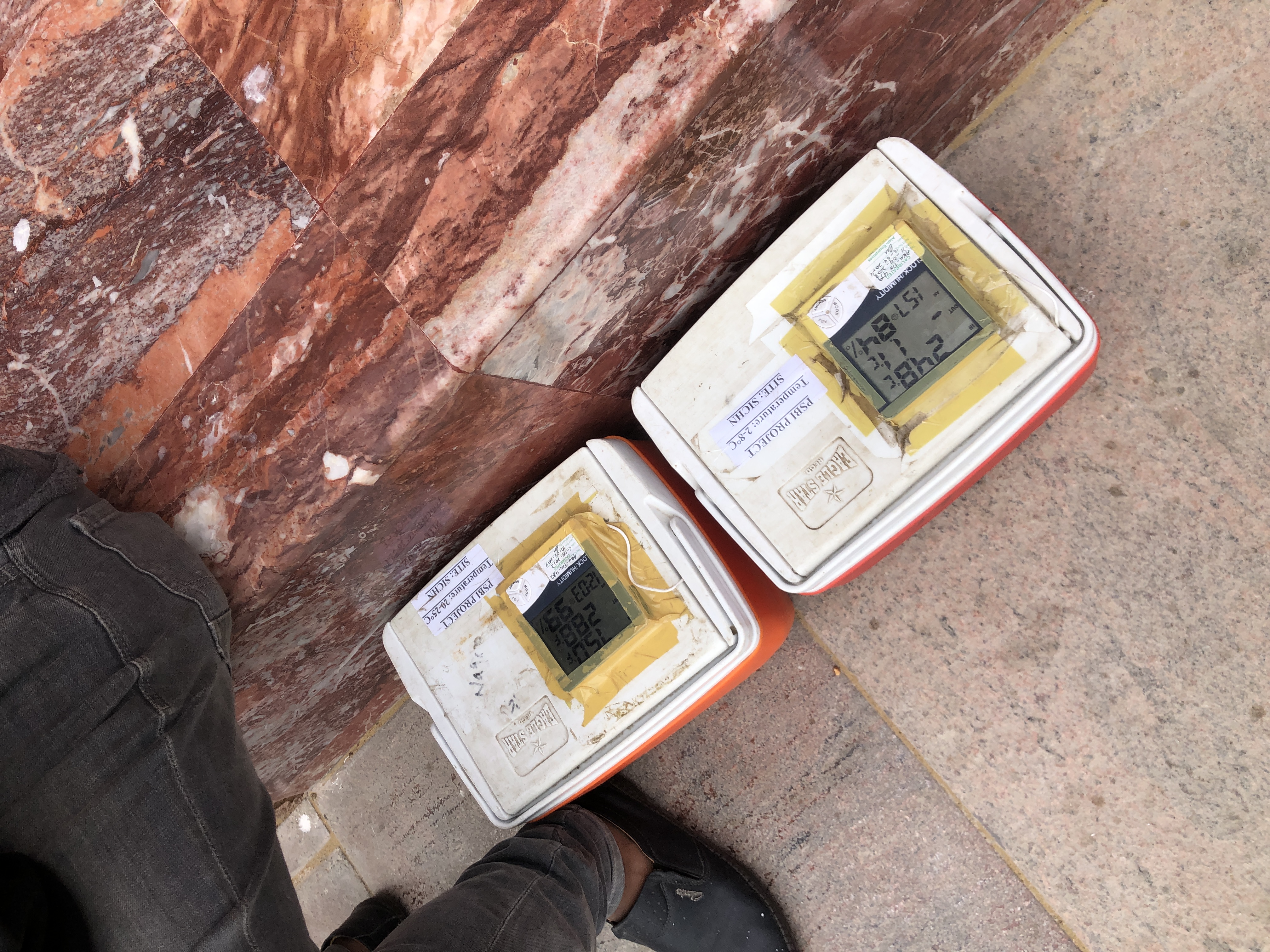The Paediatrics 'portapotties'
Why stool collection is at the heart of research at Paediatrics and Child Health
If you happen to drive to AKU early in the morning and enter from Gate 3, you will see red and white boxes piled up by the new WCH building. These boxes known as “Colemen" in PaedsSpeak belong to our teams of data collectors who collect stool from pregnant women and children taking part in our studies. These rectangular coolers are crucial for the work that our researchers do to investigate the causes of child morbidity and mortality and to help formulate strategies to prevent child deaths.
Sustainable Development Goal or SDG Target 3.2 focuses on ending preventable deaths of newborns and children under 5 years of age, reducing neonatal mortality to at least 12 per 1,000 live births and under-5 mortality to at least 25 per 1,000 live births.

This is inarguably a daunting task. Neonatal survival remains among the lowest in the region, with nearly 42 per 1,000 babies not making it to their one-month birthday. It is compounded by a continuing high post neonatal mortality of over 25/1000 live births. Together, about 6-7/100 babies born in Pakistan do not make it to their fifth birthday. Neonatal problems related to poor maternal nutrition and enteropathy, prematurity, infant malnutrition and vaccine preventable infections in children, compounded by poverty, poor sanitation, hygiene and prolonged slow growth remain largely responsible for most afflictions affecting this population.
The humble stool specimen, a normal byproduct of human digestion, that we have grown to respect and love not only as paediatricians but also as researchers. The stool here is patiently awaited, meticulously collected within specific timeframes and under pre-recommended conditions.
It is then stored, depending on the need, into either a fridge or a 400K USD freezer (under -80 degrees Celsius) like a prized specimen. How we do this is critical to the types of questions we can answer with the stool sample. The stool is an important gateway to the intricate nexus of our body and can answer many questions related to some of the causes and the “causes of the causes" of the aforementioned mortality, and potential interventions that can be proposed.
For example, poor gut health from malnutrition and recurrent infections can be measured reliably from stools of pregnant women and babies. This is the basis of some important studies such as the experimental medicinal platform or EMP trials, where live bacterial products and/or probiotics are being tested to reduce inflammation in pregnant women, an important underlying cause of small babies and pregnancy disorders such as preeclampsia. In many instances, the tests include studying the microbiome also known as the normal (or abnormal) microbiota that hide quietly in our gut, but continue to influence health and disease by determining how the baby digests her milk, or how a malnourished pregnant woman processes her dietary supplements. Stool is also being used to monitor the Pakistan polio situation and help develop better vaccines for it.


